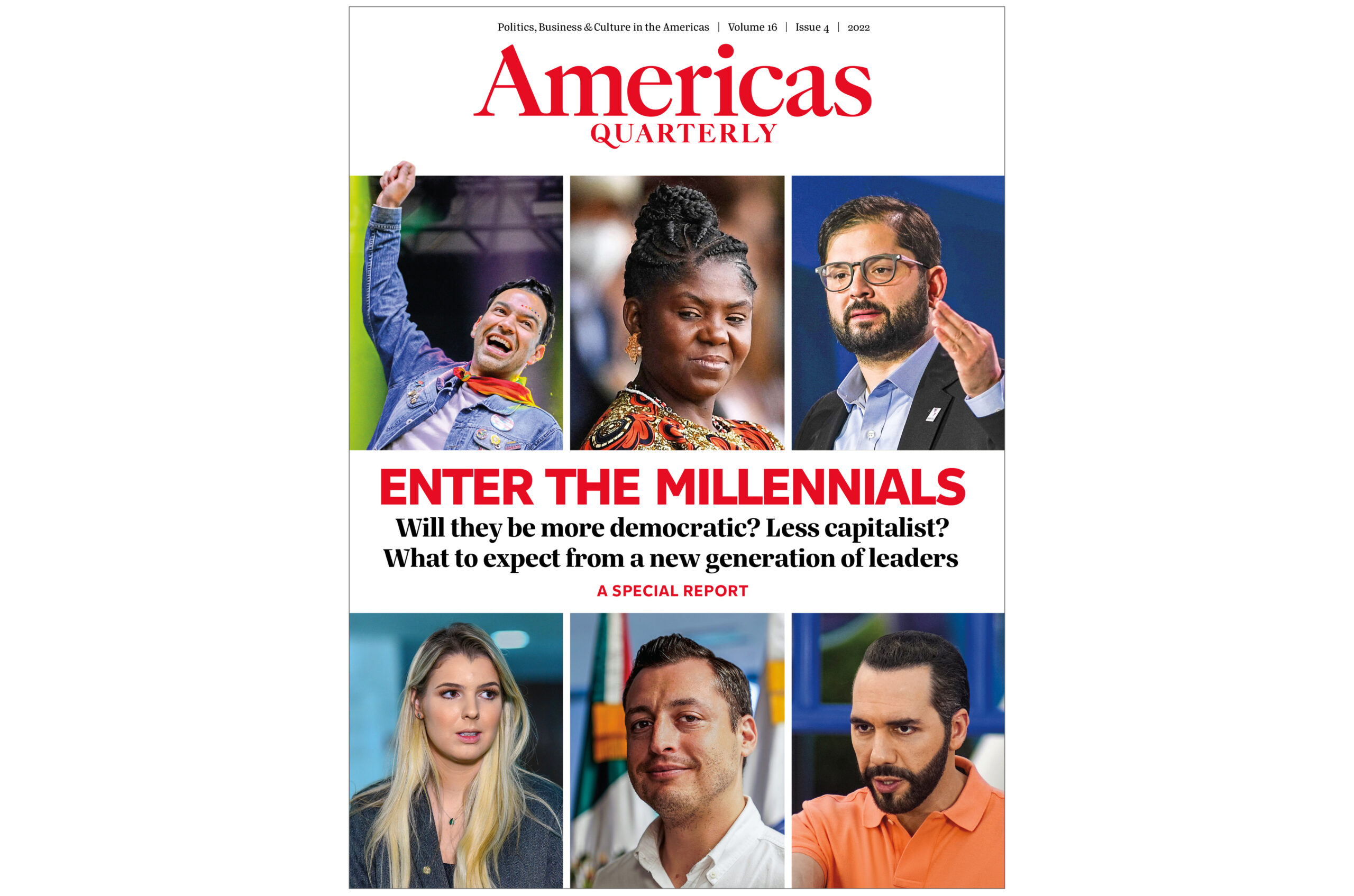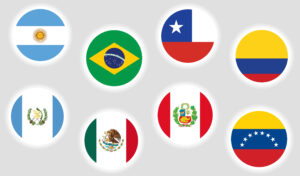This article is adapted from AQ’s special report on millennials in politics | Leer en español | Ler em português
There are already two millennial presidents in Latin America, and they offer starkly different visions of what the next generation of leaders might bring.
Chilean President Gabriel Boric, 36, has prioritized climate change, named a majority-female Cabinet and speaks passionately about democracy, human rights and dialogue with those who think differently. President Nayib Bukele, 41, has by contrast used Twitter and TikTok to vilify El Salvador’s opposition and independent press, jailed 50,000 people under a state of emergency since March and recently declared he would run for a second term, even though it’s prohibited under his country’s constitution.
Which leader more accurately represents the future? That’s a question at the core of this new special report. Polls suggest that millennials (generally defined as those born between 1981 and 1996) in Latin America are less committed to democracy and capitalism, and more skeptical of institutions, than their elders. They tend to place more importance on addressing climate, inequality and representation of women, Indigenous people and other groups.
But as the Peruvian journalist Andrea Moncada writes in our cover story, there’s a lot of nuance. “It’s not that millennials are suddenly giving up on democracy in favor of caudillos,” she writes, “or that our generation is being swayed by socialist ideologies and a desire to tear down the capitalist system.” If anything unites them, she says, it’s the belief that the political class has “failed on its promise to deliver more equitable and just societies.”
That reflects a broader anti-incumbent sentiment in Latin America—and it suggests change is coming. As millennials make their way into political office, it seems there are more Borics than Bukeles. But take note: Bukele is wildly popular, with an approval rating above 75%, while Boric and many like him are stuck at levels less than half that. Unless democracy can deliver, and soon, young voters everywhere may be tempted by authoritarian rule.










